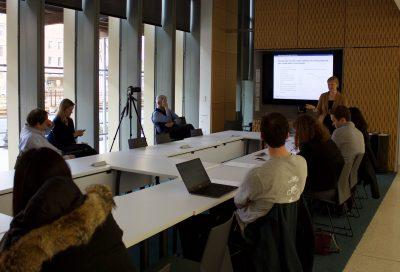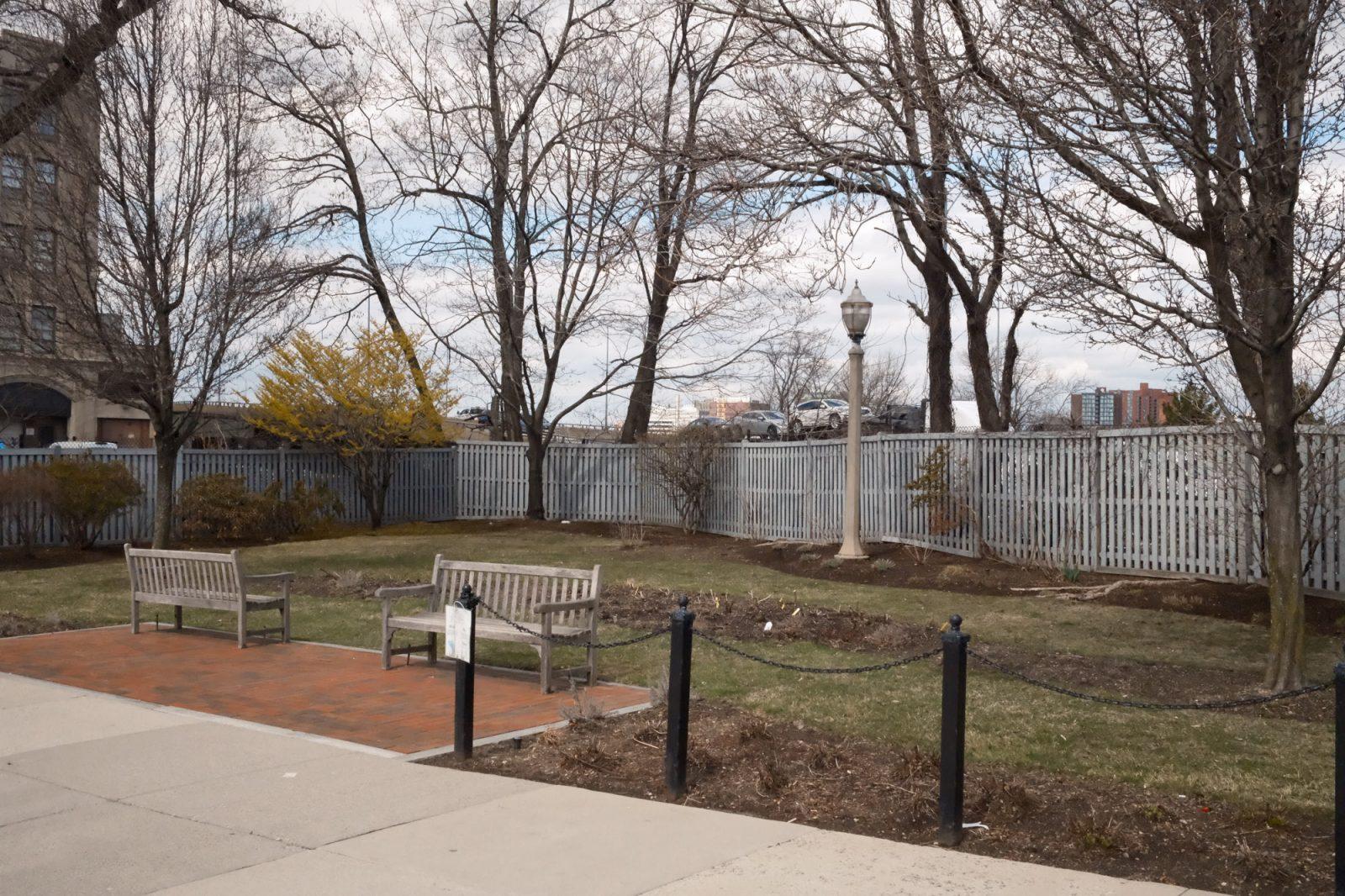
Gesturing to an image of flowing water on her screen, Jacqueline Ashmore asked audience members to consider where their water came from.
Ashmore, the executive director for the Boston University Institute for Sustainable Energy, discussed the interconnected nature of water and electric utilities on March 25 in the Rajen Kilachand Center for Integrated Life Sciences and Engineering.
“We probably all got up this morning, turned on the faucet to brush our teeth, took a shower and didn’t really pause to think about what a miracle it is that we can get water reliably,” Ashmore, who is also a research associate professor in BU’s Department of Mechanical Engineering, said in the talk. “Even if we do pause, we probably don’t think about the amount of energy that was used to get that water.”
The seminar, titled “Water, Energy, and the Utility of the Future,” was part of the ISE’s 2019 spring symposium series, “Utility of the Future.” The series features talks by guest speakers centering on the future of utilities and the effects of “transformative forces” on the electric utility industry, according to the series’ website.
ISE senior research fellow David Jermain hosts the symposium series.
“Utilities in general — electric, gas and water — are in a state of great turmoil right now,” Jermain said. “Issues around decarbonization and sustainability are significant factors in what the industry is going through. Lots of people are talking about how the industry needs to change, and larger issues around policy deserve more attention and discussion right now.”
Previous talks in the symposium series have focused on energy grid management as well as diverse views on the future of utility. Ashmore chose to discuss the connections and similarities between energy and water utilities in the symposium format, so she could open up the discussion to a broader base, she said.
“Right now there’s increased interest, especially with students who might want to go into energy as a career,” she said. “You can’t realize you want to work in a given area if you don’t know it exists, so I wanted to build that discussion in the community.”
Ashmore presented her work as a co-author of the Integrated Urban Water Management in Texas case study for innovation in water. The project worked with water utilities in five cities in Texas to examine possible future plans to integrate a “One Water” solution in order to prepare for future water shortages in the state.
She said community interaction played an important role in furthering the new ideas and solutions that she worked on in Texas.
In the face of incoming challenges such as climate change and resource depletion, Ashmore said utilities, both energy and water, have an obligation to engage with their customers.
“Utilities have a profound responsibility to public health,” Ashmore said. “And they can actually be drivers of change since they can bring together municipal planners, developers and engineers.”
She explained during the seminar that in Texas, many of the water utilities rely on underground reservoirs for their water supply, but the reservoirs have a finite amount of groundwater.
To contend with this, Ashmore said some utility companies have plans to reuse “greywater” — relatively clean wastewater that was previously used in baths, showers, sinks and washing machines — for projects such as irrigation. Additionally, she said, these companies capture groundwater and reuse air conditioning condensate for such purposes.
Some of the Texas water companies had success in talking to some of their top customers about overuse, Ashmore said. Utilities and city representatives in some Texas cities have initiated conversations with developers on how their development projects may be locking in particular water usage systems.
“Plans in water and energy tend to be hard to change sometimes because they are long term,” Ashmore said. “For a utility to be forward-thinking, there needs to be driving change somewhere in the leadership — someone who is saying, ‘Let’s think about this differently.’”
Jesse Ruf, a graduate student in the Questrom School of Business who is part of the BU Energy Club, attended the seminar and said he hopes students have conversations about responsible water usage.
“We’ve seen a huge demand for conversations about energy with incoming students, even from those not going into the field,” Ruf said. “Even those who haven’t taken classes in it, they want to know more about energy.”
The BU Energy Club is an organization of graduate and undergraduate students and alumni interested in the field of energy. The club is currently planning a conference on energy grid transformation on April 19.
“It’s good for me to learn more about the topic as we plan the conference,” Ruf said. “There’s kind of a natural overlap.”


















































































































